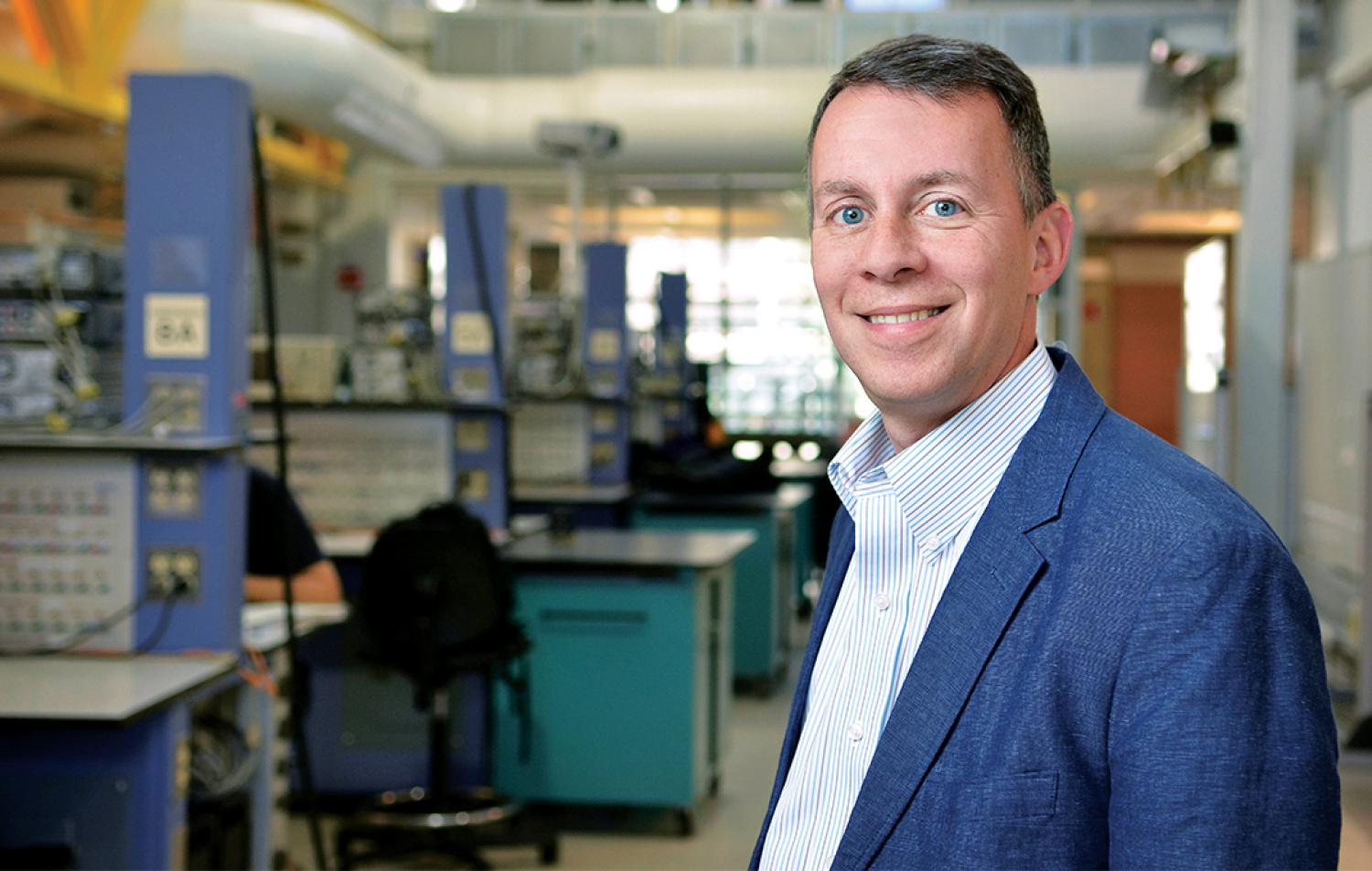
Inquiry: Talking Moon and Mars with Engineering Dean Bobby Braun

The dean of CU Boulder's College of Engineering & Applied Science is a former NASA chief technologist. Here he talks about the moon, Mars and why we should think there's life on other planets.
There’s a lot of talk about sending humans back to the moon. Do you think that should be a high priority?
The U.S. space program should always have a flagship goal. When the United States is fully committed to achieving its space goals, our nation benefits in many ways — economically, in national security and with quality of life. Our nation should commit to becoming deep space explorers.
What could we learn from another moon visit that would help us put people on other planets — Mars, say?
Returning to the moon is one path to reduce some of the operations risk of a human Mars mission. The moon is much closer and therefore a safer step. While there are distinct technologies needed for surface operations on Mars relative to the moon, learning how to live and work in space beyond low-Earth orbit will require new space transportation systems, habitation systems, autonomy and navigation technologies.
Could we get humans to Mars now? Could we get them back to Earth?
Yes. Absolutely. With the technology currently available, we could land humans on Mars and return them safely to Earth. No Nobel prizes in physics (like those CU already has to its name) need be won — we know the hardware and approach it would require. However, that question hinges on much more than the technological aspects of the mission, including stable support from Congress and the American people, as well as alignment among all facets of the space community — government, academia and industry.
Do you expect this will happen in your lifetime?
Yes. We are certainly trending closer and closer, as a nation and as a society. Personally, I’ve been dreaming of seeing humans walk on Mars ever since I watched the first U.S. planetary lander, Viking, touch down on the Mars surface over 40 years ago.
You were NASA’s chief technologist. What were some highlights of the job?
Working with Congress and the White House to create a new organization within NASA that invests in the technologies needed for future missions in space was definitely one. Creating a foundational research and technology program that extended beyond the next mission was, and still is, a critical need for an agency that plans to send humans to the moon and Mars, discover life on other planets and search for Earth-like planets around other stars. Representing the amazing work being done by the technologists and applied scientists across the agency, in academia and industry, was also the honor of my lifetime. Lastly, working across many different government agencies to help create the National Nanotechnology Initiative, National Robotics Initiative and the Advanced Manufacturing Partnership was time well spent.
How is commercial space travel likely to influence NASA’s priorities?
Industrial strength is a hallmark of the United States space program. The fact that the U.S. space industry has emerged as a major provider is extremely exciting, even enabling, for some of the national missions under consideration. NASA has been increasingly leveraging its relationship to commercial space partners. This relationship has proven to be mutually beneficial and is still growing.
CU is about to open a new aerospace engineering center. How will it make us better?
This facility will allow us to grow our pipeline for talent, connect us more closely to industry across the state and the nation and serve as a connector for aerospace activities across our campus. The new building positions us at the center of the aerospace innovation ecosystem.
You once edited the Journal of Spacecraft and Rockets. What’s your all-time favorite spacecraft?
Pathfinder, which landed on Mars on July 4, 1997, obviously holds a special place in my heart. I was part of the team responsible for safely landing it and the first-ever Mars rover, Sojourner, on the surface of the Red Planet.
What’s the best reason to believe there’s life on other planets?
Given the sheer size of the universe and the massive number of planets out there, one has to consider the mathematical probabilities. To me, answering this age old question is just a matter of time.
Condensed and edited.

